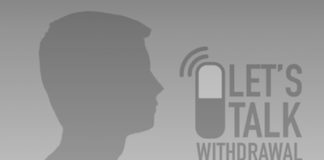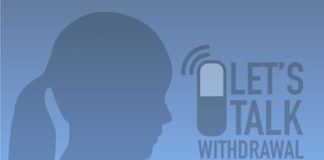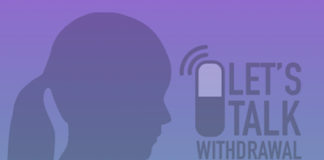Tag: coming off psychiatric drugs
Christopher: A Transformational Journey from Psychiatric Hospital To Working In Peer...
Christopher describes his transformational journey starting with a very difficult childhood which led him to be treated for many years with various psychiatric medications. After successfully withdrawing, he now works a Program Manager for Heart & Soul inc in California, an organisation which offers a variety of mental health recovery-oriented and wellness support opportunities.
Dede: How the Emotional Freedom Technique (EFT) Helped Antidepressant and Benzodiazepine...
We interview Dede who turned her withdrawal experiences into a force for good and now uses the Emotional Freedom Technique (EFT) to assist those in withdrawal from antidepressants or benzodiazepines.
Daryl: Prescribed Antidepressant Drugs At 9 Years Old
Daryl, who was only 9 years old when he was taken into mental health services and medicated, talks about being made to take both antidepressant and antipsychotic drugs and he describes the lies told to him to justify treatment.
Major National Newspaper Looking for Drug Withdrawal Stories
From the Council for Evidence-Based Psychiatry: A major national newspaper is looking for people in the UK willing to share recent stories of negative effects...
Giovanna: Withdrawing from SSRI Antidepressants After 23 Years
We talk to Giovanna from Australia who was prescribed an antidepressant aged 17 and tried many times to withdraw over the next 23 years. She shares her experiences with us including the advice and support that she received and her hopes for the future.
Claire: Antidepressant Withdrawal, Tapering and SSRI Discontinuation Syndrome
Claire shares her powerful story of being prescribed antidepressants at the age of 16 and her experiences of trying to withdraw., describing how she tapered gradually over 2 years, but went on to experience SSRI discontinuation syndrome
The Harm Reduction Guide to Coming Off Psychiatric Drugs
Based on more than 10 years work in the peer support movement,The Icarus Project and Freedom Center’s 52-page guide is used internationally by individuals, families, professionals, and organizations to support reducing and coming off psychiatric drugs.
Curing Schizophrenia via Intensive Psychotherapy
I believe that an Intensive Psychotherapy can lead to healing and, often, a cure of psychotic states. By cure I mean the cessation of delusions and hallucinations, and a gradual titration off of antipsychotic medication, with the cure lasting—even without continuing psychotherapy.
Please Join Groundbreaking Research on Psychiatric Medications
Psychiatric medications such as antipsychotics and antidepressants account for a huge number of published research studies. This existing research, however, is almost exclusively constrained within a medical model approach, purporting to evaluate medications as treatment for biological brain disorders, and designing studies accordingly. The disease, and how medications presumably affect it, is at the center — with pharmaceutical company financial interests not far behind. That paradigm is starting to change.
The Recovery After an Initial Schizophrenia Episode (RAISE) Study: Notes from...
I was a psychiatrist who participated in the Recovery After an Initial Schizophrenia Episode Early Treatment Program (RAISE ETP). Although I welcomed the positive headlines that heralded the study's results, the reports left me with mixed feelings. What happened to render the notion that talking to people about their experiences and helping them find jobs or go back to school is something novel?
Study 329 in Japan
By 2002 GlaxoSmithKline had done 3 studies in children who were depressed and described all three to FDA as negative. As an old post on Bob Fiddaman’s blog reproduced here outlines, several years later they undertook another study in children in Japan. (Editor's note: This is a re-print, by David Healy, of a post by Bob Fiddaman)
Majority of Youth Prescribed Antipsychotics Have No Psychiatric Diagnosis
The majority of children, adolescents and young adults prescribed antipsychotic medications have not been diagnosed with a mental disorder, according to a recent study published in JAMA Psychiatry.
“Study: Kids with ADHD taking strong drugs with major side effects”
Fox 5 Atlanta featured a back to school story about the growing percentage of preteens and teens being prescribed antipsychotic medication for ADHD. They report:...
“10 Things I’d Tell My Former (Medicated) Self”
On The New York Times Opinionator Blog, Diana Spechler has written a series entitled “Going Off,” relating her experience transitioning to a life without...
Science and Pseudoscience in Psychiatric Training: What Psychiatrists Don’t Learn and...
Evidence based care is supposed to drive up standards, ensure uniformity, establish best practice, guide clinicians and protect patients. This should be celebrated. Instead, evidence-based mental health is openly disparaged, and when psychiatrists don’t get the results they want, they ignore them, suppress them, or denounce them. These attitudes have repercussions on the training of psychiatrists.
Setting the Intention to Heal: The Starting Point of Mental Health...
In my work facilitating depression support groups, I have discovered three essential factors to healing from depression, which I call ”the three pillars of mental health recovery.” In my earlier blogs for Mad in America I wrote about two of these pillars --connecting with community and using a holistic approach to treat symptoms. Now I would like to present the first and MOST IMPORTANT pillar — Setting the Intention to Heal.
Snail’s Pace Race
I live a slow paced life. I meditate every morning, refuse to get a smart phone (yet), and it takes me generous amounts of time to do things. This isn't because I am “stupid” or slow to get things. Sometimes I wonder how others get so much done each day - yet the quality and vibration of what I do is unique. It needs time. How does this relate with psychiatric drugs? Psych drugs are rooted in impatience, urgency, emergency.
Finding the Meaning in Suffering: My Experience with Coming off Psychiatric...
For the last month or so, Mad in America has been hard at work building a directory of “mental health” providers across North America (and eventually, we hope, the world) who will work with people wanting to come off psychotropic drugs. I’ve been honored to have been tasked with the responsibility of building this directory, and I have to say, it’s been inspiring to talk to people all over the country who do this work, and who “get it”.
About Being Paul Revere
A reader asked why more psychiatrists don’t speak up louder against psychiatric drugs. I’d like to think there’s someone in charge who could sound the alarm. It’s nice to imagine that working doctors have the power and freedom to speak up in a forceful and visible manner. If such a doctor exists, it’s not a psychiatrist who works in the trenches. A working doctor today is not in a position to be Paul Revere.
Components for a Good Neuroleptic Withdrawal Program
The United States desperately needs good programs to help people withdraw from neuroleptic drugs. From all I have seen and heard, there aren’t any - none at least that can reputably claim to get good results on a fairly consistent basis. Again and again I find myself challenged to envision such a program, and in reply to the challenge I have broken down this hypothetical program into various components.
Reflections on a Psychiatric Indoctrination, or, How I Began to Free...
(dictionary.com)
Cult, n.
a particular system of religious worship, especially with reference to its rites and ceremonies.
an instance of great veneration of a person, ideal, or...
“Baby Cry Too Much?”
This is the second in my new series, “Haiku for social change”, the first having appeared on my own blog page. Since this piece is about pharmacology and psychopharmacology, I think MIA is a good home for it.
Fact-Checking the General Counsel in the Markingson Case
Ever since critics began asking questions about the death of Dan Markinson in a clinical trial at the University of Minnesota, the General Counsel for the university, Mark Rotenberg, has responded with a uniform message: the case has already been investigated many times, and no wrongdoing has ever been found. That's how Rotenberg responded to my article about the case in Mother Jones, and that's how he responded last week to the news that the Board of Social Work had issued a “corrective action” to the study coordinator for the clinical trial in which Markingson died.
Involuntarily Voluntary
I was never voluntary, no matter how much I convinced myself I was. Only now, my mind, body, and spirit fully free from the mental health system, am I coming to understand this. After desperately searching for answers to that once perplexing question of “Who am I?” I have found that I’m connecting with a true, authentic sense of my Self for the first time.
The United Met States of Psychiatry
Psychiatry’s desperate drive to legitimize itself as a profitable medical authority has resulted in a mass delusion so pervasive and destructive that it's put us on a path towards societal collapse. This is not an overstatement, in my opinion, as the statistics are mind-boggling— one in five Americans are on psychiatric drugs. One in five. By my calculations, this means that 62,913,200 people ingest mind-altering, body-altering, spirit-altering pills they believe to be “medications” on a daily basis.


















